'Democracy' intern: Meriem
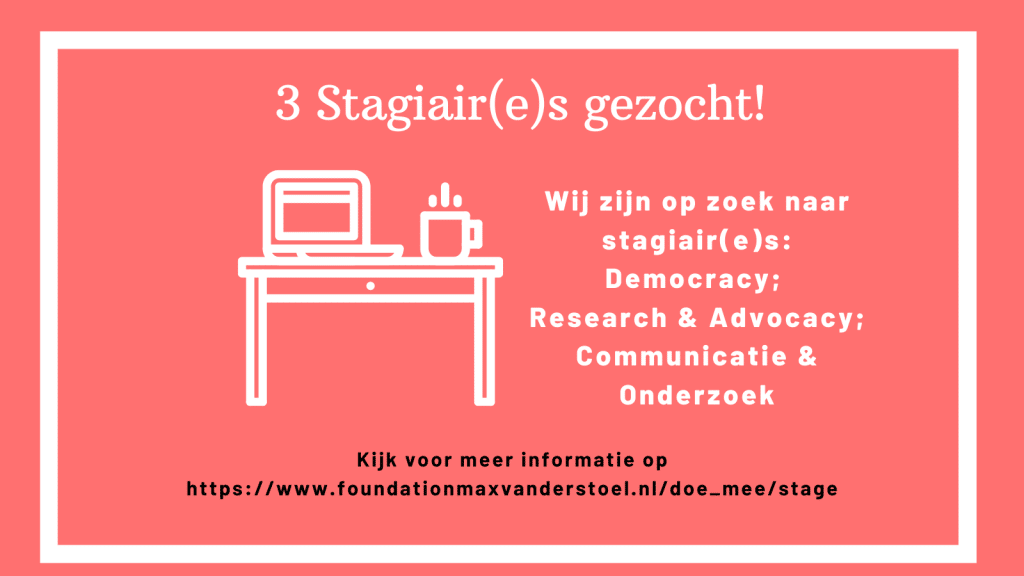
My name is Meriem Hammami, I am 24 years old and a recent graduate. I have a bachelor's degree in International Communication, with a focus on the Middle East, from Zuyd University of Applied Sciences and a master's degree in Public Policy and Human Development from United Nations University and Maastricht University. Stimulated and inspired by the Arab Spring, which was in full swing after I finished high school, I chose my studies carefully.
"It's kind of a family feud", 3.5-year crisis in the GCC
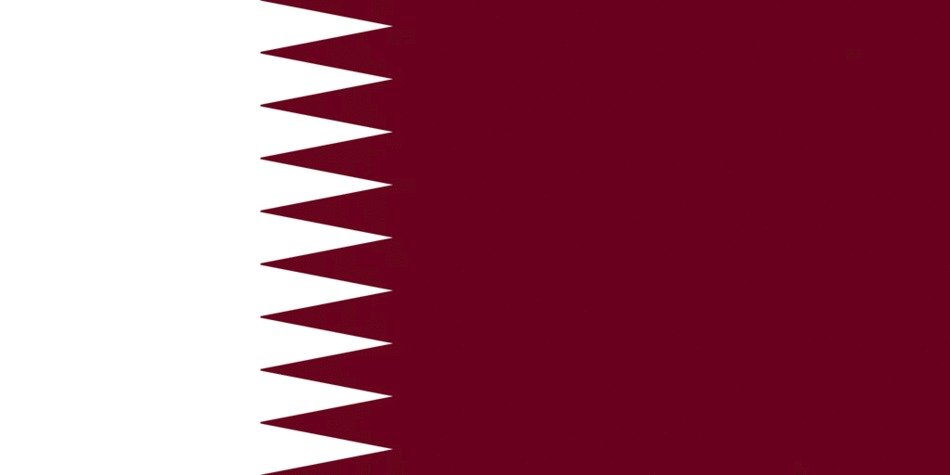
Donald Trump, President of the United States (US), considers lifting the blockade on Qatar a priority in his last 70 days in power. This his national security adviser Robert O'Brien told the 2020 Global Security Forum. The blockade, imposed by Saudi Arabia, the United Arab Emirates (UAE), Egypt and Bahrain, has been called a crisis within the Gulf Cooperation Council (GCC) and has been going on for 3.5 years. The big question is: can the crisis really be resolved with US help? To answer this, we will first have to look at what exactly happened.
Belarus: need for hope after more than 100 days of protests and violence
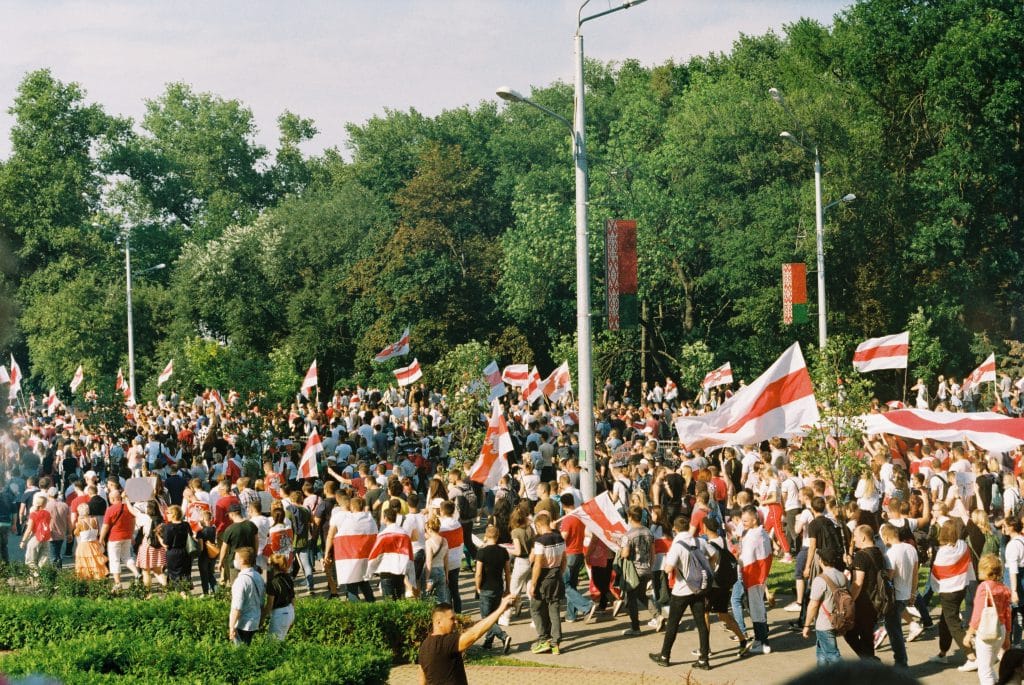
It has been more than a hundred days since Belarus went to the polls. For more than a hundred days, people have been taking to the streets on a daily basis against the result announced at the end of that ballot: the victory of incumbent President Alexandr Lukashenko. His challenger, Svetlana Tikhanovskaya, is now in exile. This month, she visited the Netherlands, where she continued to call for solidarity with the protesting Belarusian people.
Still no new president for Ivory Coast
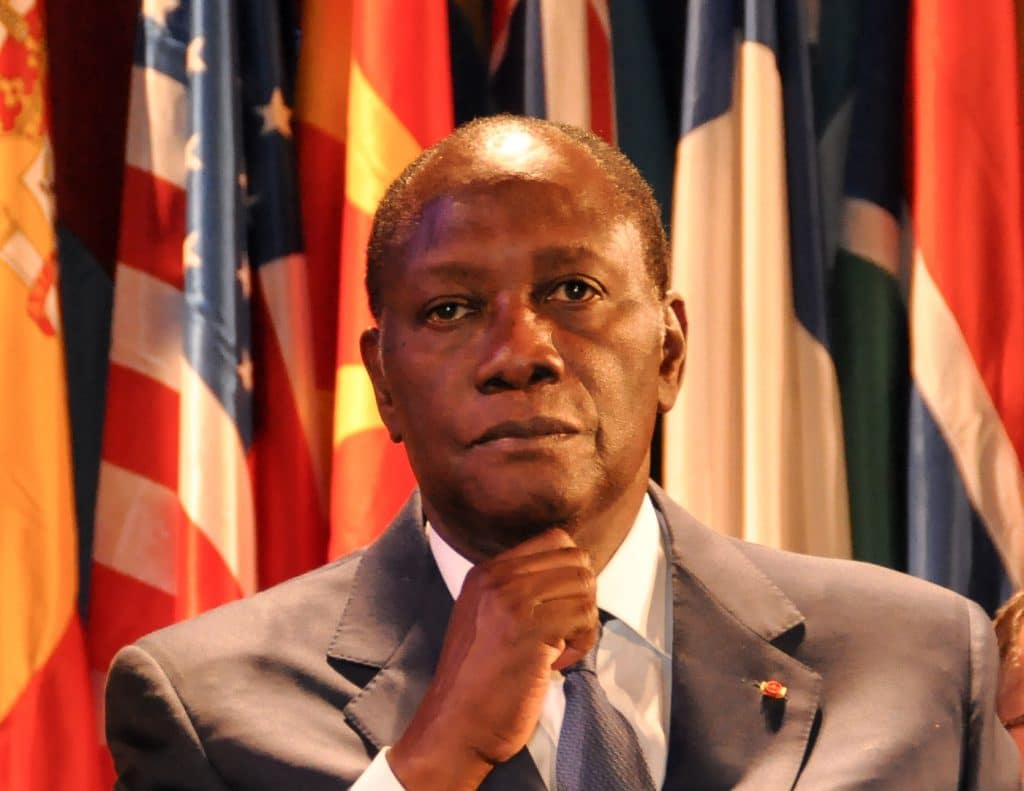
After more than a week of uncertainty and unrest, the constitutional court has finally confirmed the winner of the election. The incumbent president has forced a new term through the ballot box. Wait... the incumbent president? But Trump had lost, hadn't he? Yes, he did. But this goes the 31 October election in Côte d'Ivoire, won by 78-year-old Alassane Ouatarra.
Ongoing protests in Belarus
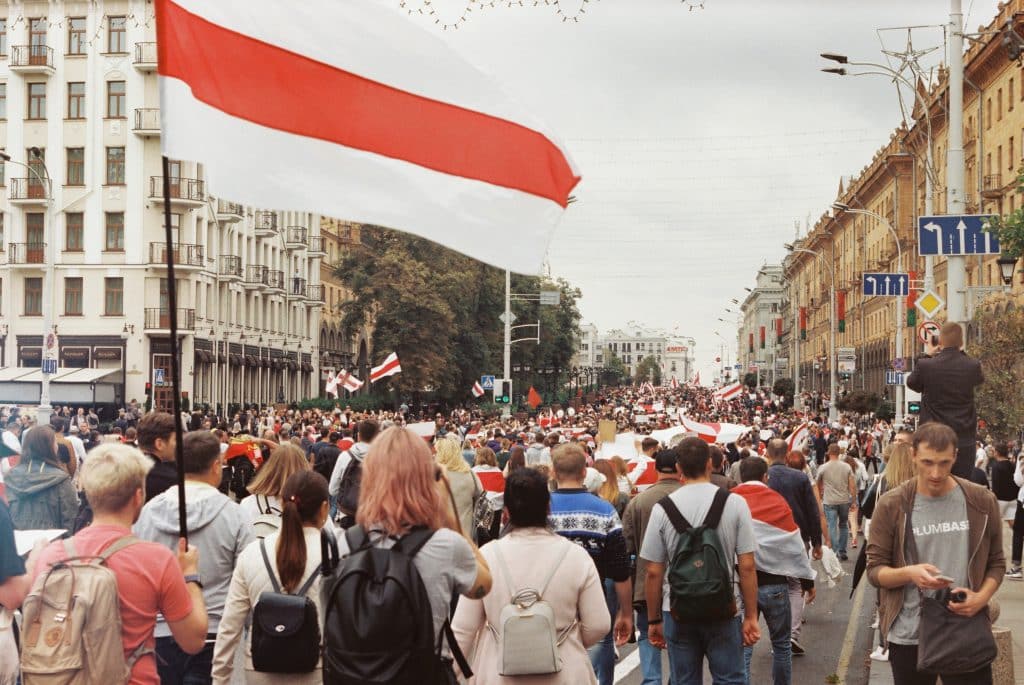
Since May 2020, the Belarusian people have been protesting against the re-election of President Aleksandr Lukashenko. With a 26-year term, Lukashenko is one of the longest-serving - and most autocratic - heads of state in Europe. Although the Belarusian people have spoken out against electoral fraud under Lukashenko many times before, the current protests are unprecedented - never before have so many people mobilised in such a sustained and organised manner against the incumbent president. Why are the protests so persistent just now? And what kind of strategy should the European Union adopt regarding the protests in neighbouring Belarus?
With mouthpiece to ballot in Romania

After the summer, the number of coronavirus infections in Europe increased again. Romania is no exception. The number of infections is rising, and the number of deaths is high compared to other EU countries. Schools have also now started again and elections are imminent.
Trump's 'breakthrough' between Serbia and Kosovo
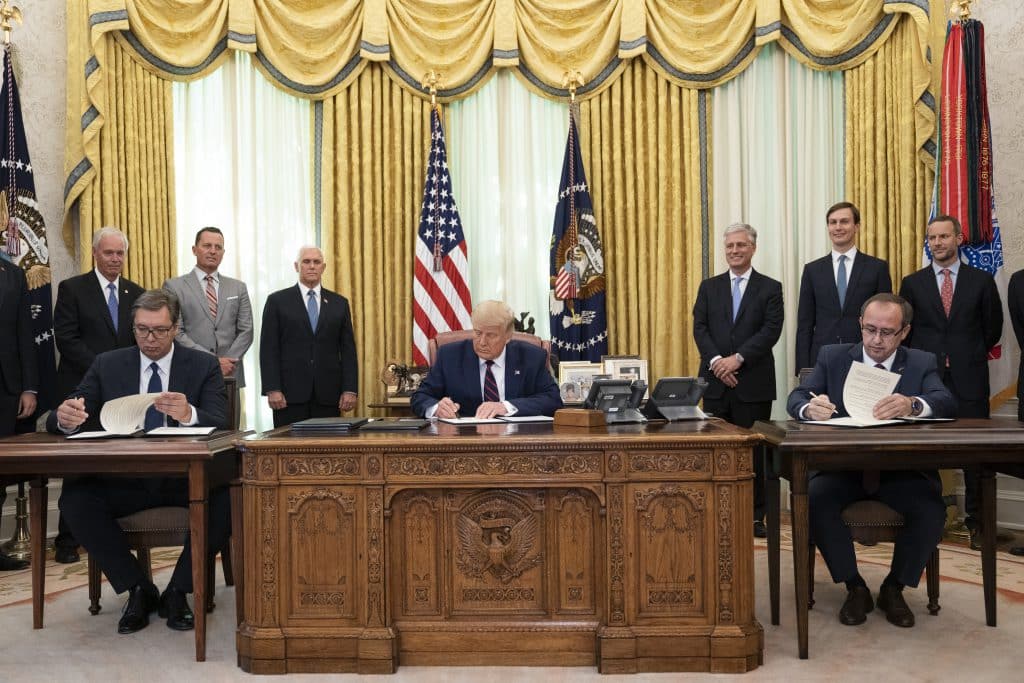
Last Friday, US President Trump announced a breakthrough between Kosovo and Serbia, with an agreement that strengthens ties between the two countries. Since Kosovo's declaration of independence in 2008, the neighbouring countries have had a tense relationship. Serbia refuses to recognise that Kosovo is an independent country, and still sees it as a province of Serbia. For years, attempts have been made - unsuccessfully - to bring the countries closer together. Whether this agreement is really a breakthrough remains to be seen, as its content is not very concrete.
Djukanovic defeated after thrilling election battle
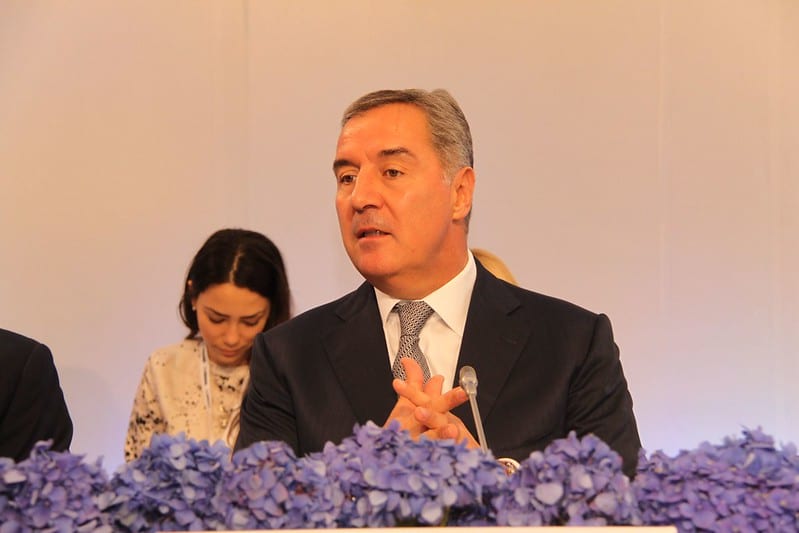
In Montenegro, voters went to the polls last Sunday. It was an exciting election day, as the opposition coalition 'For the Future of Montenegro' was neck-and-neck with the Democratic Party of Socialists (DPS), which has been in power for 30 years. For voters, it was a choice between this pro-European party in power and the pro-Serbian and Russian opposition coalition. 75.9% of registered voters cast their vote, the highest turnout Montenegro has ever had since the introduction of the current electoral system. There was confusion after the first exit polls, as the DPS and the opposition coalition said: that they had gained enough seats in parliament to form the next government. In the end, the opposition coalition along with other opposition parties turned out to have enough seats to form a new majority.
Online Political Café: the future of Belarus
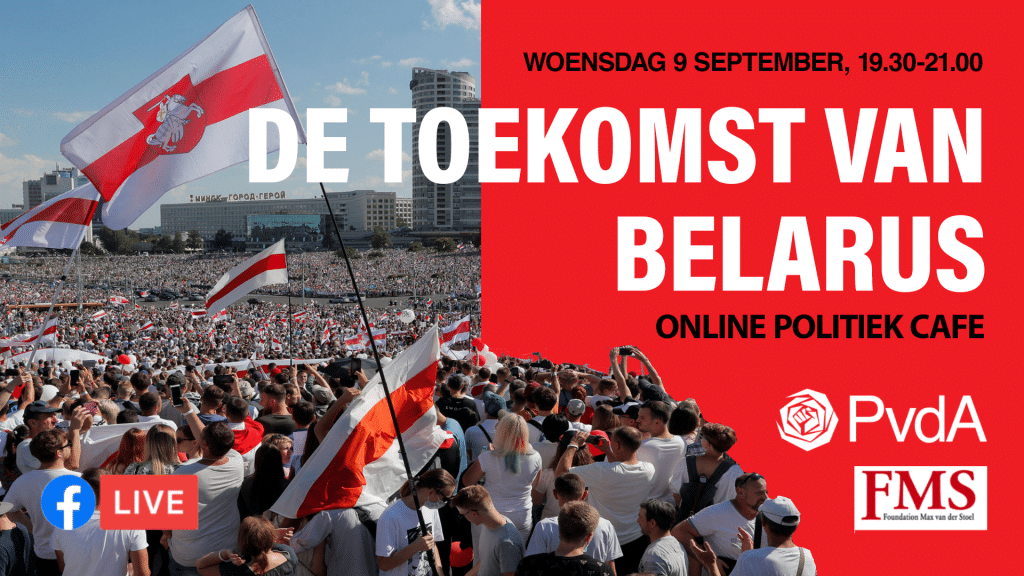
There is something unusual going on in Belarus (Belarus). Presidential elections were on 9 August and once again Lukashenko, who has been in power since 1994, won the election. But, the population is moving and speaking out and the regime seems to be under pressure more than in other years.
#westandBYyou: against repression and for fair elections in Belarus
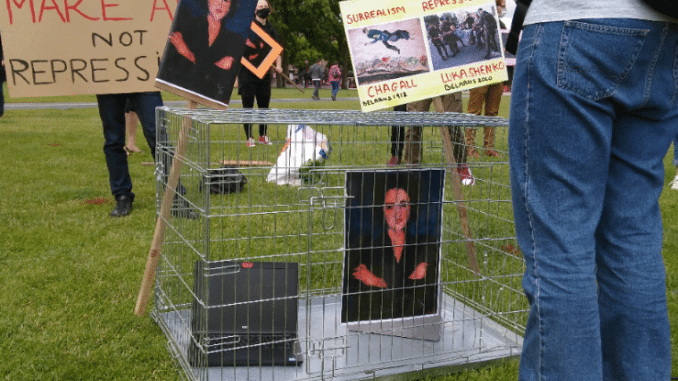
Something unusual is going on in Belarus (Belarus). Presidential elections are on 9 August and most probably the current president, who has been in power since 1994, will win again this time. But, the population is moving and speaking out and the regime seems to be under pressure more than in other years.
Five years ago, elections in the shadow of the Maidan revolution and war in Ukraine went very peacefully for Lukashenko and he extended his term without any problems. On the contrary, the elections before that, 10 years ago, were accompanied by large-scale arrests and long prison sentences, including of presidential candidates. The big difference with this year is that the arrests started even before candidate registrations were opened. For instance, a popular blogger, who did not hide his ambitions, was jailed even before registering as a candidate. Another popular candidate was arrested while collecting signatures for his candidature and subsequently not admitted as a candidate.

